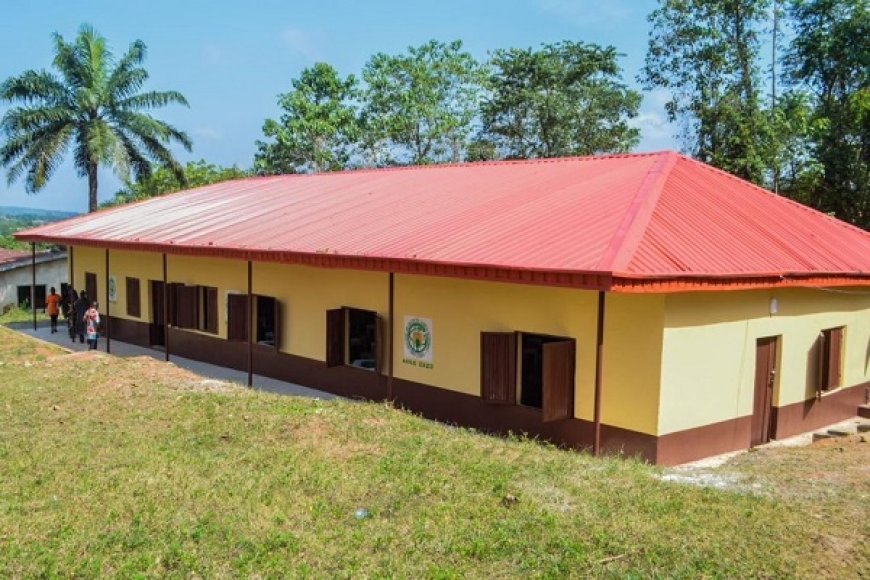Nigeria Accelerates School Reconstruction Amid Persistent Security Challenges
Nigeria is rebuilding schools in insurgency-affected regions in 2025, aiming to restore education access and promote stability amid security challenges.

Nigeria is undertaking a significant effort to rebuild schools in regions severely affected by insurgency and violence, reflecting a determined commitment to restoring education and fostering stability across its most troubled areas. The initiative seeks to reverse the damaging effects of years of conflict that have disrupted learning, displaced communities, and hindered social development.
As Nigeria continues to grapple with security challenges posed by insurgent groups, banditry, and communal conflicts, the government’s education rebuilding campaign aims to send a strong message: education is a pathway to peace, resilience, and long-term development.
Background: Security Challenges Disrupting Education in Nigeria
Over the past decade, Nigeria has faced severe security crises, particularly in its northern and central regions. Boko Haram insurgency in the northeast has led to widespread destruction of schools and the displacement of millions, while banditry and communal violence have affected states such as Kaduna, Zamfara, and Plateau.
These security threats have resulted in:
-
Closure and destruction of thousands of schools
-
Mass displacement of students and teachers
-
A sharp decline in school enrollment and attendance
-
Increased illiteracy and educational gaps
The education sector’s destabilization has long-term consequences for Nigeria’s socio-economic progress and national cohesion.
Scope of the School Rebuilding Initiative
The Nigerian government, in partnership with international organizations, NGOs, and local communities, has launched a comprehensive school reconstruction program focused on:
-
Rehabilitating destroyed or damaged school infrastructure
-
Building new classrooms and facilities in underserved areas
-
Providing learning materials, furniture, and technology
-
Recruiting and training teachers for conflict-affected zones
-
Implementing psychosocial support for traumatized students
The Ministry of Education has identified priority regions where educational disruption has been most severe, channeling resources to restore safe and conducive learning environments.
Key Regions Targeted for Reconstruction
-
Northeast Nigeria: States such as Borno, Yobe, and Adamawa bear the brunt of Boko Haram’s insurgency. Here, many schools were destroyed or converted to military camps. Efforts focus on rebuilding facilities and encouraging displaced children to return to school.
-
Northwest and North-central: Areas affected by banditry and communal clashes, including Zamfara, Kaduna, and Plateau, have seen schools damaged or abandoned due to insecurity. Rebuilding aims to facilitate community reconciliation and reestablish education access.
-
Other vulnerable areas: In some southern regions affected by localized violence or infrastructural neglect, schools are also being upgraded as part of broader educational reforms.
Collaboration with International Partners
Nigeria’s education rebuilding drive is supported by key international partners:
-
United Nations Children’s Fund (UNICEF): Providing funding, educational materials, and technical expertise to support school rehabilitation and child protection.
-
World Bank: Financing infrastructure projects and education sector reforms through dedicated loans and grants.
-
Global Partnership for Education (GPE): Supporting capacity building for teachers and improving curriculum delivery in crisis-affected areas.
-
Non-governmental organizations: Groups such as Save the Children and Education Cannot Wait work on the ground to implement programs that promote safe access to education.
This multi-stakeholder approach strengthens the initiative’s reach and effectiveness.
Impact of School Reconstruction on Communities
Restoring education infrastructure has tangible benefits for communities affected by violence:
-
Encourages return of displaced families: Safe schools incentivize families to return home, contributing to regional stability.
-
Reduces vulnerability to recruitment: Access to education lowers risks of child recruitment into armed groups.
-
Promotes social cohesion: Schools become centers for community rebuilding and dialogue.
-
Enhances future prospects: Education equips youth with skills necessary for employment and economic participation.
Challenges to Reconstruction Efforts
Despite progress, several challenges remain:
-
Ongoing insecurity: Active conflict zones limit access for construction and humanitarian teams.
-
Funding gaps: Financial constraints hamper the scale and speed of rebuilding.
-
Logistical hurdles: Remote or destroyed infrastructure complicates material delivery.
-
Teacher shortages: Attracting and retaining qualified teachers in unstable areas is difficult.
-
Psychosocial trauma: Addressing the emotional needs of children affected by violence requires specialized support.
Government Initiatives Complementing Reconstruction
The Nigerian government is implementing complementary measures, including:
-
Security enhancement: Military operations and community policing aim to create safer environments for schools.
-
Policy reforms: The education sector is being modernized with a focus on resilience and inclusion.
-
Community engagement: Programs to involve parents and local leaders in school governance enhance accountability and security.
Success Stories and Progress
Several states have reported positive outcomes:
-
In Borno State, the reopening of rebuilt schools has led to a significant rise in student enrollment, with thousands returning after years of displacement.
-
Kaduna has launched community-driven initiatives to repair schools and reintegrate children affected by violence.
-
Partnerships with NGOs have introduced mobile learning centers in inaccessible areas, ensuring education continuity.
Expert Insights
Dr. Fatima Abubakar, an education specialist with UNICEF Nigeria, commented, “Rebuilding schools in conflict-affected zones is more than infrastructure; it is about restoring hope and normalcy. Education plays a critical role in peacebuilding and preventing cycles of violence.”
She added, “Sustained investment and security are essential to ensuring that gains are consolidated and expanded.”
The Road Ahead: Sustaining Education Amid Challenges
Nigeria’s school reconstruction is an ongoing effort requiring long-term commitment. Experts emphasize:
-
Strengthening security: Ensuring safe access to schools is paramount.
-
Enhancing funding mechanisms: Mobilizing domestic and international resources to close gaps.
-
Fostering community ownership: Empowering local actors to maintain schools and support students.
-
Addressing mental health: Integrating psychosocial services within education frameworks.
-
Monitoring and evaluation: Establishing systems to track progress and adapt strategies.
Conclusion
Nigeria’s efforts to rebuild schools amid ongoing security challenges demonstrate a resolute commitment to restoring education and stability in affected regions. While significant hurdles persist, the initiative underscores education’s vital role in healing communities and fostering sustainable peace.
As Nigeria navigates complex security landscapes, the international community’s support and local engagement remain crucial to ensuring that children, regardless of circumstance, have access to quality education and the opportunity to build a brighter future.











